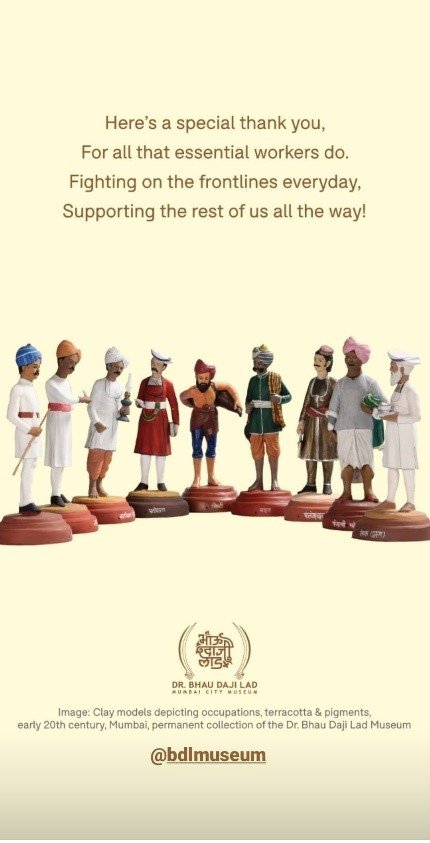Dr. Bhau Daji Lad Museum, Mumbai, India
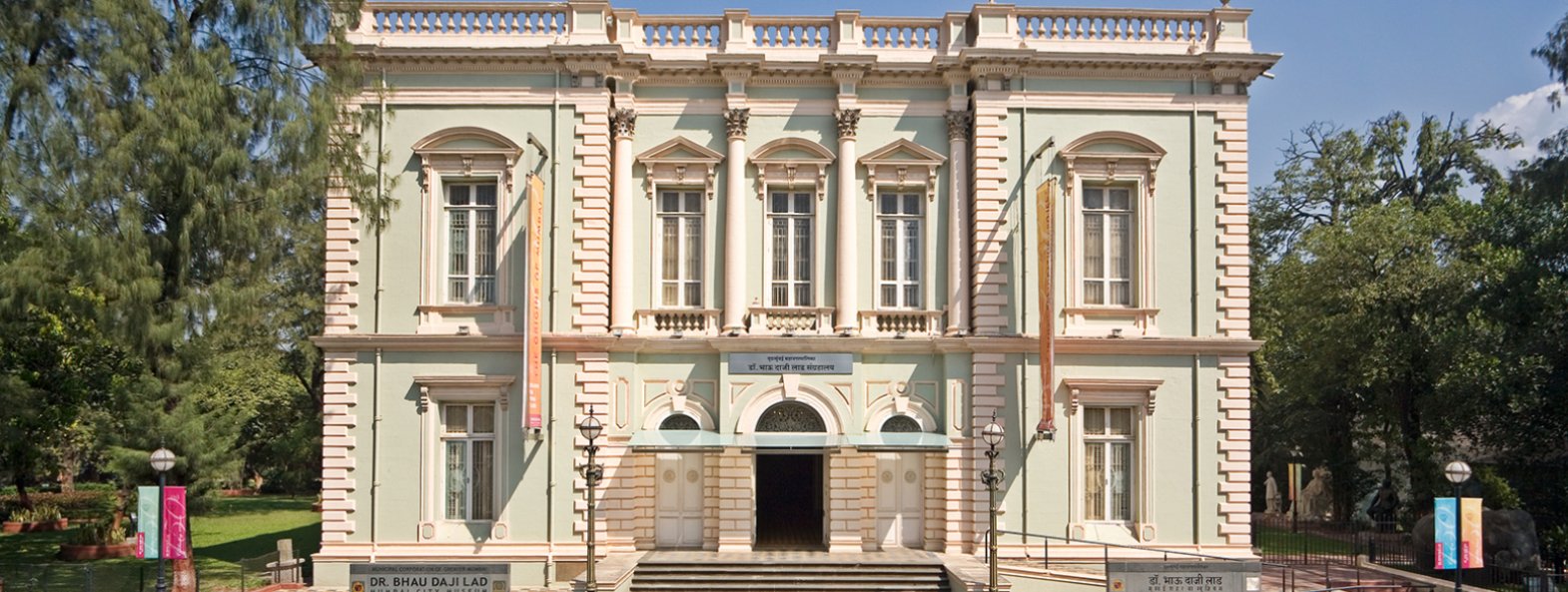
The Dr. Bhau Daji Lad Museum strives to fulfill its core mission of cultural education and community engagement through its various digital platforms including Instagram, Twitter and Facebook. Opened in 1857, the Museum was conceived as a modern institution that would showcase innovative artistic practices.
After several years of neglect the Museum was restored and received UNESCO’s Asia Pacific Award of Excellence for Cultural Conservation in 2005. It reopened to the public in 2008 with a strong focus on contemporary practice in keeping with the Museum’s original intention. The Museum has exhibited contemporary creative practices in design, crafts and textiles, architecture and urbanism, as well as film and video art.
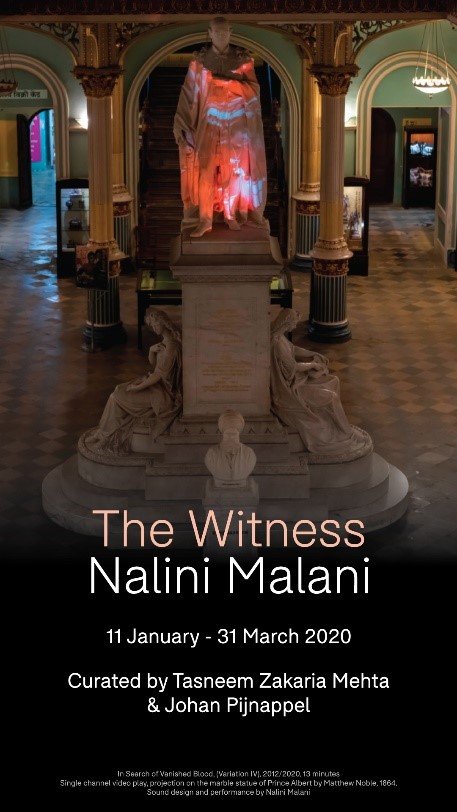
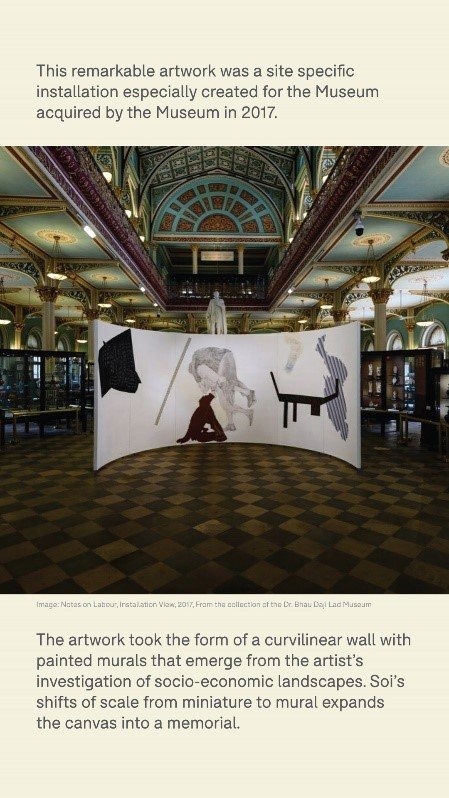
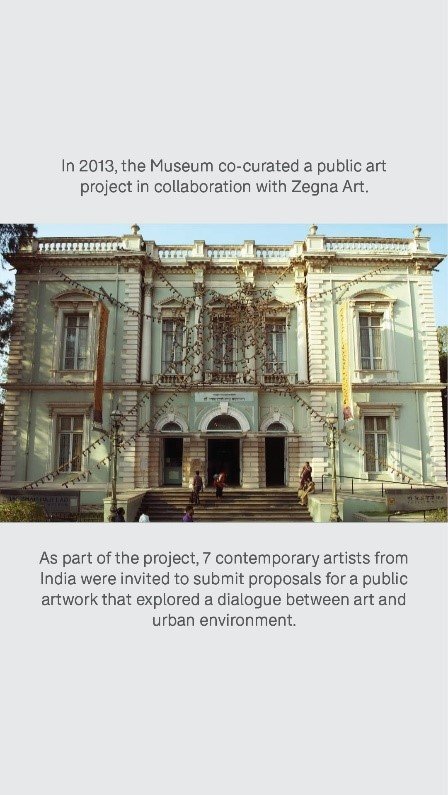
The nation-wide lockdown in India in response to Covid, was imposed in mid-March 2020 and the Museum immediately responded by expanding its digital programme. In 2016, the Museum was the first in Mumbai to be invited to showcase its collection on Google Arts & Culture. This has enabled us to showcase a wide selection of our collection and exhibitions online. As the lockdown was sudden, with only 4 hours of notice, and announced in the evening, we were unable to access our offices and archives physically and have only had access to material that is on our website and online. However the Museum has not been deterred by this handicap and has developed a range of digital programmes that address different constituencies and invite the public to engage creatively and extensively with our collections.
#FlashbackFridays revisits our contemporary art exhibitions and contemporary art acquisitions contextualising their continued relevance today. Current issues have been addressed though these works. For example, we focused on the hardships faced by daily wage workers and craftspeople in ‘Notes on Labour’, an exhibition by Praneet Soi. Artist Reena Kallat’s work, ‘Untitled (Cobweb/Crossings)’, recalls the burden of bureaucracy in our lives. Atul Dodiya laments the loss of Gandhian values in today’s polity in ‘7000 Museums: A Project for the Republic of India.’
The exhibition 'Asymmetrical Objects’ (2018), which marked our 10th reopening anniversary, explored issues related to the Age of Anthropocene. We invited 10 eminent, contemporary Indian artists whose practice sits at the intersection between art and science to respond to this theme. A video of the exhibition was circulated online to draw attention to climate change and consumption as we witness the effects of the global pandemic, and the need to change our lifestyle to enable a sustainable future.
#TuesdayTalks presents past lectures on modern and contemporary art that were held at the Museum, which are available online. We have hosted two online Treasure Hunts, to encourage visitor exploration of the collection,by asking people to solve clues and find certain objects in the Museum.
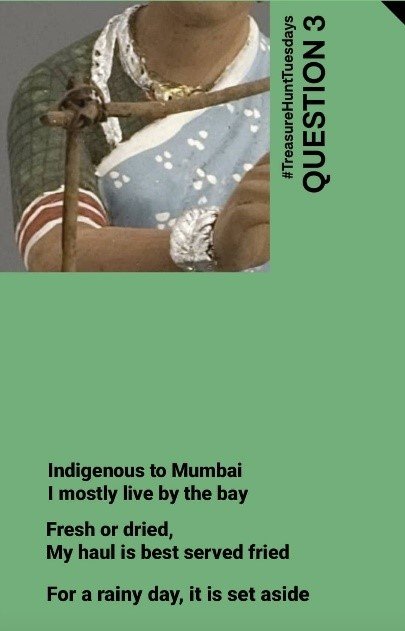
We recently hosted our first webinar on the occasion of International Museum Day to discuss the impact of the pandemic on art exhibitions in public spaces such as museums and biennales. The panelists included distinguished artists and curators, Nikhil Chopra, Shuddhabarata Sengupta, and Gayatri Sinha, moderated by the Museum's Director, Tasneem Mehta.
We have reimagined the Museum’s collection to promote the World Health Organisation's health advisories regarding Covid. We reinterpreted our 19th century collection to create #QuarantineCards that can be shared online by our audiences to promote the message of social distancing and good health. We acknowledged the efforts of our essential workers by giving them a special Museumaward.
We are researching new ideas about urban design for an online exhibition that can suggest ways to alleviate the difficulties our cities have faced in this pandemic, particularly concerning migrant housing, inspired by our early urban housing dioramas and maps.
Links to the institution website as relevant support material:
- Website:www.bdlmuseum.org
- Instagram: https://www.instagram.com/bdlmuseum/
- Twitter: https://twitter.com/bdlmuseum
- Facebook: https://www.facebook.com/BDLMuseum
- YouTube: https://www.youtube.com/bdlmuseum
